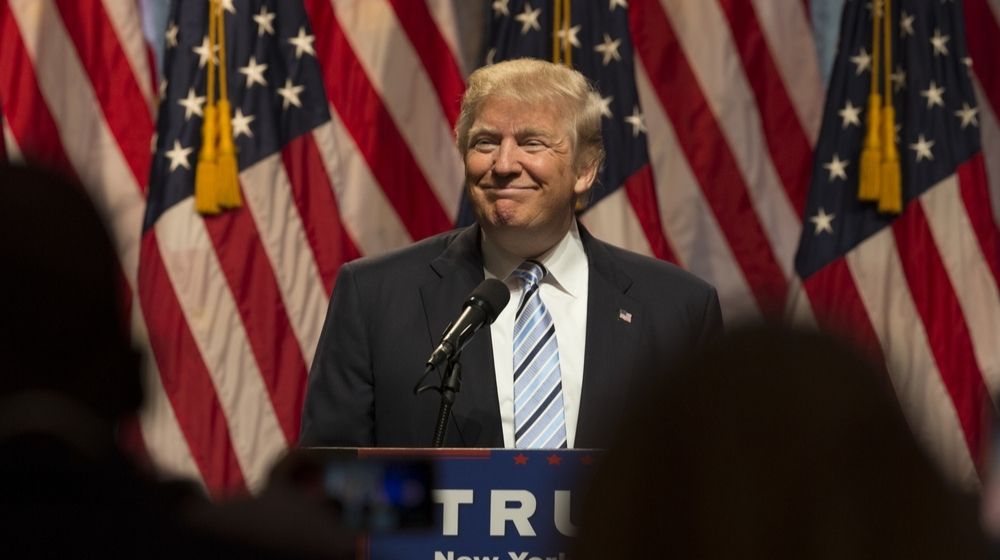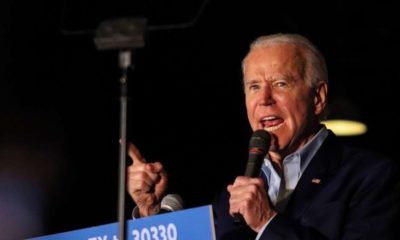Breaking News
Trump’s Executive Orders: A Masterstroke

Through executive orders, Donald Trump has bypassed Democratic opposition to give meaningful relief to American families. Also a practical necessity for an ineffective Congress, the move offers major political benefits, and a dilemma for his foes. His opponents are left with a catch-22: allow a victory for the president, or hinder aid for their constituents.
Executive Orders Bypass Relief Deadlock
Both Democrats and Republicans want some economic relief for Americans. However, they differ widely on the proper scope of that relief. Democrats want to spend nearly three times as much as Republicans. Importantly, not all Republicans are on board with more federal relief spending. The Republicans’ $1 trillion proposed stimulus bill saw opposition from budget hawks in their own party, such as Ted Cruz and Rand Paul.
The biggest rift between Republicans and Democrats is the size of a stimulus deal. As the election approaches, the chances of congressional cooperation are ever slimmer. With this in mind, Trump likely saw the opportunity to assist Americans and score a political victory before November.
The president signed four executive orders. The executive orders will:
- Temporarily cut payroll taxes (something Trump would like to make permanent if he wins a second term).
- Extend federal student loan deferment until the end of 2020.
- Provide $400 of weekly federal unemployment.
- Order the Secretary of Health and Human Services to investigate whether a ban on evictions in needed.
“Unconstitutional Slop”
NEW YORK TIMES —
"Trump’s Go-It-Alone Stimulus Won’t Do Much to Lift the Recovery"
"A series of executive actions will provoke lawsuits but is unlikely to stoke faster growth in an economy that has cooled this summer."https://t.co/egcEoRbXio
— Jesse Ferguson (@JesseFFerguson) August 9, 2020
Democrats reacted with characteristic outrage to the executive orders. They allege that the orders are unconstitutional, going beyond the president’s powers and encroaching on Congress’ “power of the purse”.
Senate Minority Leader Charles Schumer called the orders illegal, while also predicting that they would be impossible to follow through on:
“The bottom line is the executive orders — I agree with [Democratic Congressman] Sasse that they’re unconstitutional slop — but the bottom line is even if they’re here, they’re not going to do what’s needed or come even close.”
Nancy Pelosi, one of the president’s most avowed nemeses in government, echoed Schumer’s claims that the orders are unconstitutional.
“Well, the fact is, is that whether they're legal or not takes time to figure out. Right now we want to address the needs of the American people,” she told CNN. “As my constitutional advisers tell me, they're absurdly unconstitutional.”
“Constitutional advisors” notwithstanding, political analysts say the courts are unlikely to strike the orders down so close to an election. Democrats, while vocally critical of the orders, are also unlikely to challenge them. Doing so would alienate them from their voters, making them the “bad guy” who seeks to take benefits away just to hurt Trump.
Stimulus Checks Uncertain
Though virtually all Democrats and many Republicans want another round of $1,200 stimulus checks, congressional deadlock as prevented any such deal. The White House chose not to prioritize the $1,200 check, perhaps foreseeing greater opposition and legal challenges to an executive order for direct cash payments.
For now, the president’s executive orders are the only federal spending since the spring to make it to ordinary Americans. Whether people like him or not, it’s difficult to call that a knock against Trump, and may provide a key advantage against Biden if Congress continues to dither.
Up Next:












